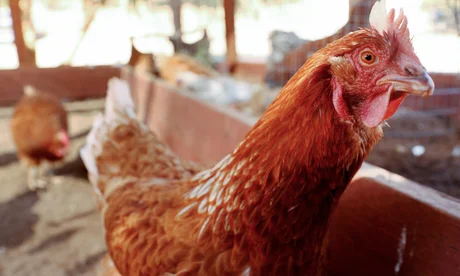3 min read • 487 words
In a recent development, the state of Missouri is grappling with a groundbreaking case of bird flu that has captured national attention. According to recent reports, a Missouri resident has been diagnosed with the avian influenza virus, marking a significant milestone in the ongoing battle against the disease. This case, detailed in a CNN article, is notable not only for its rarity but also for the circumstances surrounding the infection.
Unprecedented Human Infection
The Missouri bird flu case is unique because it involves an individual who is not linked to poultry or other known animal reservoirs of the virus. Historically, bird flu cases in humans have been predominantly associated with direct contact with infected birds or their droppings. However, this recent case defies that trend, as the patient has no known contact with poultry. This unprecedented situation is raising alarm among health experts and prompting investigations into potential new transmission pathways.
According to The Washington Post, this case marks the first instance of avian influenza spreading to a human without a direct connection to animals. The exact mode of transmission remains under investigation, but the discovery has highlighted the need for heightened vigilance and research into the virus’s potential for human-to-human transmission.
Impact on Public Health
The implications of this Missouri bird flu case are significant for public health. While the virus has primarily affected birds and has rarely crossed over to humans, this incident underscores the importance of monitoring and preparedness. The Missouri Department of Health has already initiated a comprehensive response, including:
- Contact tracing
- Increased surveillance to identify any potential secondary cases
Health officials are urging the public to remain aware of the symptoms associated with avian influenza, which can include fever, cough, and difficulty breathing. The risk to the general population remains low, but the situation is being closely monitored. The Centers for Disease Control and Prevention (CDC) has been involved in the investigation and is working to understand the implications of this case for future outbreaks.
Response from the Poultry Industry
The poultry industry in Missouri is also on high alert. Given that avian influenza has previously caused significant economic damage to the poultry sector, industry leaders are concerned about the potential for further spread. Measures are being taken to ensure the safety of poultry products and to prevent any possible contamination. However, experts emphasize that there is currently no evidence suggesting that the bird flu strain involved in this case poses a risk to food safety.
Key Takeaways
- A Missouri resident has been diagnosed with avian influenza without a known link to poultry, an unprecedented transmission event.
- Public health officials are conducting contact tracing and surveillance, though the overall risk to the public is currently considered low.
- The poultry industry is on alert, but there is no evidence of a threat to food safety from this strain.
- The case underscores the need for ongoing research and vigilance regarding the virus’s transmission pathways.






